- http://www.tribology.group.shef.ac.uk
- http://www.tribology-abc.com
- http://www.tribonet.org
- https://www.mikrotribologiecentrum.de
…more to come

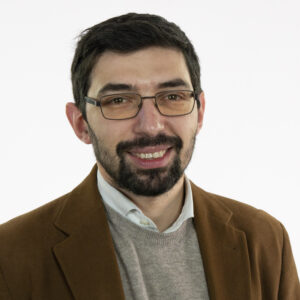
Gianandrea Vittorio Messa studied Civil Engineering (Hydraulics) at Politecnico di Milano, where he received the M.Sc. cum laude and the PhD with honours in 2009 and 2013, respectively. Since 2021, he is Associate Professor at Politecnico di Milano, where he teaches courses of Fluid Mechanics and Hydraulics. His main research interest is the numerical modelling of wear of materials in a slurry environment and, as a side activity, he also deals with pipeline hydro-transport processes and turbulent jet flows.

Dr. Wenjun (Rebecca) Cai is an Associate Professor in the Department of Materials Science and Engineering (MSE) at Virginia Tech. Prior to joining VT in Aug 2018, Dr. Cai was a faculty member of the Mechanical Engineering department at the University of South Florida (2012-2018). Her current research focuses on understanding the processing-structure-property relationships of metals and coatings under extreme conditions (e.g., corrosion and tribocorrosion) using experiments, analytical theory, and computer simulations. She received her BS from Fudan University in 2005 and her Ph.D. from UIUC in 2010, both in Materials Science and Engineering. She was a postdoc research associate at MIT from 2010-2012. She received Racheff-Intel award for outstanding graduate research at UIUC in 2010, National Science Foundation CAREER award in 2015, outstanding faculty award from USF in 2016, and TMS young leaders professional development award in 2017.
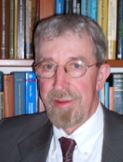
Ken Budinski is currently technical director of Bud Labs, a tribotesting company in Rochester, NY USA. Ken has spent more than four decades working on tribology problems in industry (Eastman Kodak- 38 years, General Motor- 5 years) specializing I the engineering materials aspects of friction, wear, and erosion. Ken is a past Chair of the ASTM G2 Committee on Wear and Erosion and currently heads the Friction Subcommittee. He is also a past Chair of the Rochester Chapter of ASM International. He is a fellow in ASTM, ASM, and the Rochester Engineering Societies.
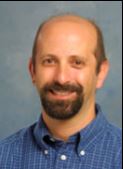
Steve received his B.S. in 1981 as a double major in Mechanical Engineering and Materials Science Engineering from the University of California, Berkeley. After taking a year off for a ‘round-the-world honeymoon with his new bride (and still wife), Katie, he obtained his M.S. in 1986 and Ph.D. in 1990, both in Materials Science Engineering, from UC Berkeley. Steve spent the first 22 years of his professional career at Battelle Memorial Institute, beginning under the mentorship of Bill Glaeser, an early founder of the Wear of Materials Conference, along with Ken Ludema and S.K. Rhee. In December of 2012, he joined Bruker Nano Surfaces Division, Tribology and Mechanical Testing Unit as a Senior Applications Scientist in support of their global applications and sales staff.
Steve specializes in applied Tribology research primarily devoted to the study of non-lubricated sliding interfaces, with a special interest in galling, though he has worked in many areas of Tribology, including bio-based lubricant development, heavily loaded sliding contacts, and the use of coatings to solve wear and friction problems.
Steve is a former Chairman of ASTM G-02, the Committee on Erosion and Wear, and is still active on this committee. He is the current US representative to the IRG-OECD research group on Wear of Engineering Materials. Steve served as Poster Chairman for WOM 2003 and 2005, Program Chairman for WOM 2007, Conference Chairman for WOM 2009 and 2011. For WOM 2001 and 2003, he was the Associate Editor for Case Studies and Short Communication, working with Ray Bayer. Steve has served as the Editor for CS/SC papers for WOM in 2005, 2007, 2009 and 2011.
Steve is a dedicated commuter bicyclist, putting more miles each year on his bicycle than on his car, and he commutes year round. His record low temperature ride into work was -22°C (that’s dedication!) Steve is also an active participant in the sport of curling, where one would think his knowledge of Tribology would make him a better curler than he is.
 Peter J. Blau is a Distinguished Research and Development Staff Member, and Leader of the Tribology Research User Center in the Materials Science and Technology Division of Oak Ridge National Laboratory. He received B.S. and M.S. degrees in Metallurgy and Materials Science from Lehigh University, and a Ph.D. in Metallurgical Engineering from The Ohio State University. His research career began with studies of impact-melted meteorites, and led to an appointment as a co-investigator for the NASA Apollo Lunar Sample Examination Program (ALSEP) in the early 1970s. With more than 30 years of research, development, and project management experience in materials engineering and tribology, he has held positions at the Air Force Materials Laboratory, the National Bureau of Standards (now NIST), the Office of Naval Research, and Oak Ridge National Laboratory.
Peter J. Blau is a Distinguished Research and Development Staff Member, and Leader of the Tribology Research User Center in the Materials Science and Technology Division of Oak Ridge National Laboratory. He received B.S. and M.S. degrees in Metallurgy and Materials Science from Lehigh University, and a Ph.D. in Metallurgical Engineering from The Ohio State University. His research career began with studies of impact-melted meteorites, and led to an appointment as a co-investigator for the NASA Apollo Lunar Sample Examination Program (ALSEP) in the early 1970s. With more than 30 years of research, development, and project management experience in materials engineering and tribology, he has held positions at the Air Force Materials Laboratory, the National Bureau of Standards (now NIST), the Office of Naval Research, and Oak Ridge National Laboratory.
Peter is a past chairman of ASTM’s Committee G-2 on Wear and Erosion, was chairman of the ASM Handbook Volume 18 on “Friction, Lubrication, and Wear Technology,” and is the author of three monographs and over 150 articles on tribology, hardness, and physical metallurgy. His most recent book is Friction Science and Technology – From concepts to applications (2008). In addition to authoring, he has served on the editorial advisory boards of several journals, including Tribology International, Tribotest, Tribology Transactions, and Wear, and was the editor for full-length papers for the 2003 and 2005 International Conferences on Wear of Materials (WOM).
After chairing WOM 1997, Peter presented an invited lecture at the First World Tribology Congress in London that same year. Other invited lectures include two NATO Advanced Studies Institutes on friction (Germany 1991, Hungary 2000), and the 2nd International Symposium on Tribo-Corrosion (Austria 2009). In addition, he’s spoken at technical society dinner meetings, university seminars, short courses, and Gordon Research Conferences on Tribology. Over the years, he has also done private consulting in automotive, aerospace, biomedical, and other industrial sectors, and has served on external evaluation panels for international research projects, the U.S. National Science Foundation, and universities.
Peter is a Fellow of ASM International, ASTM International, and the Society of Tribologists and Lubrication Engineers (STLE). His recent work has involved developing laboratory simulations for evaluating new materials and surface treatments for tribological applications, and he continues to work actively in the areas of technical terminology and standards development in ASTM Committee G2. As an avocation, he enjoys writing limericks and poems with tribological themes, and was the luncheon speaker at WOM 2009, when the first Blau Best Poster Award was given.
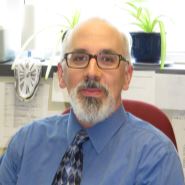
Richard R. Chromik is an Associate Professor of Materials Engineering at McGill University where he leads research efforts on surface engineering and coatings tribology. He completed his Ph.D. in Chemical Physics at Binghamton University in 2001. Prior to joining McGill in September 2006, he was a post-doctoral scientist in the tribology section at the U.S. Naval Research Laboratory and in the Materials Science and Engineering Department at Lehigh University. Throughout his career, Richard has studied many aspects of thin films and coatings, including phase transformations, magnetic, electrical, mechanical and tribological properties. He has authored or co-authored over 85 peer reviewed articles and proceedings papers. Currently, his research focuses on development and characterization of innovative coatings and surface modifications for harsh environments, including applications for space vehicles and rovers, aerospace, and the hydropower and mining industries.
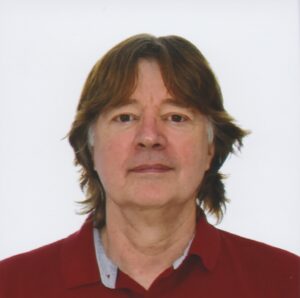
Alfons Fischer received his Dipl.-Ing. degree in mechanical engineering from the Ruhr Universität Bochum, Germany in spring of 1980. He completed his Dr.-Ing. (Ph.D.) and Priv.-Doz. (Private Lecturer) degrees in materials science and engineering from the same university in summer of 1984 and in fall of 1992, respectively. From 1992 to 1996 he was head of quality management as well as vice-head of the center of analyses and testing of NuTech GmbH, Neumuenster, Germany; a company providing laser processing technologies, materials testing, and failure analyses.
Since 1996 he was a full professor for materials science and engineering at the University of Duisburg-Essen in Germany from which he retired February 2019. His research (fundamental and applied) as well as his services (materials development and testing, failure analyses, expert reports) focus on fatigue, wear and corrosion of metals and metal-matrix composites with institutional and industrial partners in mechanical, production, automotive, off-shore, tooling, and biomedical engineering. Since 2005 he is a visiting researcher at Rush University Medical Center, Dpt. of Orthopedic Surgery, Chicago IL, USA and since March 2019 also at the Max-Planck-Institut für Eisenforschung, Duesseldorf, Germany. He serves as co-editor-in-chief of the archival journal WEAR since Jan. 1st 2020. He has published more than 240 „peer-reviewed” papers and co-authored 5 books.
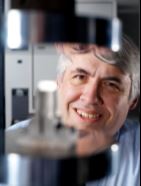 Mark Gee is an NPL Fellow in the Materials Division at the National Physical Laboratory. Recently he was awarded the status of visiting Professor at the University of Southampton and is a core member of the national Centre for Advanced Tribology and Southampton. He leads projects that are concerned with the development of an improved infrastructure for friction and wear testing in the UK. Particular research interests are the mechanisms of abrasive and erosive wear for ceramics and other hard materials, and the development of nanotribology test techniques. He has published over 200 papers and reports. He has recently been Chairman of the UK Institute of Physics Tribology Group, and was recently Secretary of the Surface Engineering Division of the UK Institute of Materials, Mining and Minerals. He is also a member of the International Advisory Editorial Boards of Tribology International, and Tribology – Materials Surfaces and Interfaces. He is a member of various standards committees including ASTM Committee G2 on Wear, ISO TC 206 Advanced Ceramics, and ISO TC 229 Nanotechnologies where he lead a project that recently published the first international standard on nanotechnologies.
Mark Gee is an NPL Fellow in the Materials Division at the National Physical Laboratory. Recently he was awarded the status of visiting Professor at the University of Southampton and is a core member of the national Centre for Advanced Tribology and Southampton. He leads projects that are concerned with the development of an improved infrastructure for friction and wear testing in the UK. Particular research interests are the mechanisms of abrasive and erosive wear for ceramics and other hard materials, and the development of nanotribology test techniques. He has published over 200 papers and reports. He has recently been Chairman of the UK Institute of Physics Tribology Group, and was recently Secretary of the Surface Engineering Division of the UK Institute of Materials, Mining and Minerals. He is also a member of the International Advisory Editorial Boards of Tribology International, and Tribology – Materials Surfaces and Interfaces. He is a member of various standards committees including ASTM Committee G2 on Wear, ISO TC 206 Advanced Ceramics, and ISO TC 229 Nanotechnologies where he lead a project that recently published the first international standard on nanotechnologies.
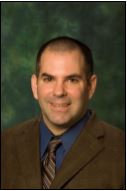
Thomas Scharf received his BSc in Ceramic Science and Engineering from the Pennsylvania State University in 1995, and his Ph.D. in Metallurgical and Materials Engineering from University of Alabama in 2000. From 2000 to 2003 he was a Postdoctoral Fellow in the Tribology Section of the Surface Chemistry Branch at the Naval Research Laboratory, Washington, DC. From 2003 to 2005 he was a member of the Technical Staff in the Microsystems Materials, Tribology, and Technology Organization at Sandia National Laboratories, Albuquerque, NM. He joined the University of North Texas in 2005 as an Assistant Professor in the Department of Materials Science and Engineering and is currently an Associate Professor. His group’s research interests include coating tribology, surface engineering, structure-property relationships in aerospace materials, and coupling advanced characterization techniques to determine solid lubrication mechanisms. He is a 2011 recipient of the Al Sonntag award from the Society of Tribologists and Lubrication Engineers and 2013 recipient of the Peter J. Blau award from Wear of Materials, Inc.

Laura Peña Parás is a Materials Science Professor at the Engineering Department at Universidad de Monterrey. She received her Bachelor’s Degree in Mechanical Engineering from Universidad de Monterrey in 2001. Laura obtained her PhD in Materials Science in 2010 from Rice University studying nanoparticle reinforced composite materials. Her current research at Universidad de Monterrey focuses on tribological characterization of nanolubricants for metal working processes.
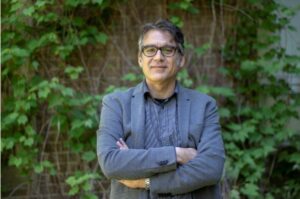
Marcello Papini obtained his Ph.D. degree in 1999 from the Department of Mechanical and Industrial Engineering at the University of Toronto. He is currently a Professor at Toronto Metropolitan University’s Department of Mechanical and Industrial Engineering in Toronto, Canada. He is also a Professor-Status Only in the Department of Mechanical and Industrial Engineering at the University of Toronto. His research interests include solid particle erosion, impact wear, abrasive jet micromachining, abrasive waterjet machining, fracture mechanics, and biomechanics. He previously held the Tier II Canada Research Chair in Abrasive Jet Technology (2007-16), and since 2013, he is a Fellow of the Canadian Society for Mechanical Engineering. He has authored over 170 refereed journal publications, and has served as co-chair of the Canadian Natural Sciences and Engineering Research Council’s (NSERC) Discovery Grant Evaluation Group 1512 for Mechanical Engineering, and the E.W.R. Steacie Fellowship Selection Committee. Since 2018, he serves as Co-Editor-In-Chief of Wear (Elsevier).
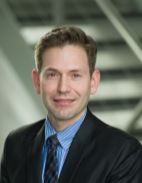
Martin Dienwiebel is a group leader at the MicroTribology Centre of the Fraunhofer Institute for Mechanics of Materials IWM and the Karlsruhe Institute of Technology KIT. His present research interests focus on nano-scaled mechanisms that lead ultra-low wear rates and low friction in applied tribosytems. He received his Diploma degree in physics from Bonn University, Bonn, Germany, in 1997, and his doctorate degree in physics from Leiden University, Leiden, The Netherlands. From 2003 to 2007, he has worked as Senior Scientist in the Research Department of IAVF Antriebstechnik AG, Karlsruhe, where he focused on the tribology of internal combustion engines. From 2008-2013 he has been leading a junior research group funded by the Deutsche Forschungsgemeinschaft at the Karlsruhe Institute of Technology.
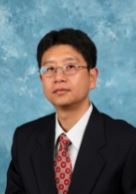
Dr. Jun Qu is currently a Senior R&D staff scientist in the Materials Science and Technology Division at Oak Ridge National Laboratory (ORNL), and an Adjunct Associate Professor in the Department of Materials Science and Engineering at University of Tennessee. He earned his Ph.D. (2002) and M.S. (1999) from North Carolina State University and Iowa State University, respectively, with the major in Mechanical Engineering and a minor in Electrical Engineering. Dr. Qu’s present research interests are in two areas (1) Tribology focusing on advanced surface engineering and lubrication, and (2) Nanostructured energy materials. He has published 50+ peer-reviewed journal papers and holds eight U.S. patents or patent applications. Dr. Qu received the Outstanding Young Manufacturing Engineer Award from the Society of Manufacturing Engineers (SME) in 2009 and a Significant Event Award from ORNL in 2011. He currently serves in the Steering Committee for Wear of Materials and is a Technical Editor for the Tribology & Lubrication Technology.
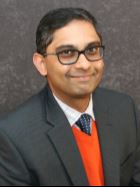
Sriram Sundararajan is a Professor of Mechanical Engineering at Iowa State University and a Fellow of the American Society of Mechanical Engineers (ASME). His research areas encompass multiscale tribology (friction, lubrication and wear) and mechanical engineering education. He has authored over 70 articles in peer-reviewed journals and conference proceedings and two invited book chapters. His research has been enabled through the successful procurement of over 3 million dollars of funding from corporate, federal, private and state sources. At Iowa State, he serves as the Equity Advisor for the College of Engineering and engages faculty in best practices to increase the diversity of the faculty body. Prof. Sundararajan also serves on the executive committee of the Mechanical Engineering Division of the American Society of Engineering Education (ASEE) and as an ABET program evaluator for ASME. At ISU, Prof. Sundararajan has been recognized for his accomplishments with the Young Engineering Faculty Research Award and an Early Achievement in Teaching Award. He received his B.E. degree in Mechanical Engineering from The Birla Institute of Technology and Science, Pilani (India) followed by M.S. and PhD degrees in Mechanical Engineering from The Ohio State University, Columbus, Ohio.
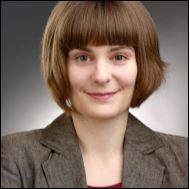
Stefanie Hanke is a researcher at the University DuisburgEssen, Germany, in the field of Materials Science in Mechanical Engineering. She completed her Ph.D. in 2014, studying the effect of thermomechanical microstructure modifications on the tribological behavior of various metallic alloys. As post-doctoral scientist she headed a group for surface modification by solid state joining techniques at the Helmholtz Center Geesthacht, Germany, until January 2017. Amongst others, she accomplished a first in-situ study of Friction Surfacing of Ti-alloys using Synchrotron radiation. Back at the University Duisburg-Essen since February 2017, her research is currently focused on the correlation of metallurgical and microstructural changes under cycling loading with mechanical material behavior, both under fatigue and tribological loading. Her interest lies in particular on sliding wear and cavitation of martensitic and austenitic steels, as well as Al- and Cu-based alloys for various engineering applications, for which she carries out detailed studies on wear mechanisms and damage accumulation underneath the loaded surfaces. She is a lecturer for Tribology and Failure Analysis at the University DuisburgEssen, and for Materials Science at the Leuphana University Lueneburg, Germany.

Professor Robert Wood is Professor of Surface Engineering and Tribology within Engineering Sciences of the Faculty of Engineering and the Environment at the University of Southampton and is Associate Dean (Research) for the faculty. He has 30 years research experience in the field of tribology and surface engineering. He has spent several years at BP Research researching into erosion and corrosion resistant coatings but returned to Southampton in 1993 to re-establish surface engineering/tribology research. His group was awarded an EPSRC S&I award in 2008 (£10M) to create the National Centre for Advanced Tribology at Southampton (nCATS) and was awarded a further £3M for research into Green Tribology under a platform Grant from EPSRC. The Centre has 8 academics, 8 postdoctoral research fellows and 30 research students.
Professor Robert Wood has research interests in rain, cavitation and solid particle erosion, erosioncorrosion interactions and modelling; tribological and multifunctional coating design and performance, biomimetic coatings for anti-fouling; electrochemical control of interfacial friction; particle modelling in pipe bends by swirl dispersion of particles. He has been involved in working on erosion of helicopter blades, nuclear slurry handling systems at Sellafield, reverse thrust actuators on aero engines, polymer coatings for potable water systems as well as offshore choke valves. He has teaching experience in Surface Engineering, Tribological Engineering and Fluid Mechanics at Undergraduate and MSc level. He is Chair of UK Tribology (a cross learned body group including IoP, IMechE, IET, RSC, IOM3 since 2011and is Editor-in-chief since Jan 2016 of the IoP Journal: Surface Topography – metrology and properties.
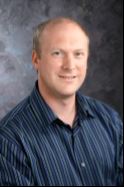 Peter M. Lee is a Staff Engineer and the Chief Tribologist at Southwest Research Institute (SwRI) in San Antonio Texas. He established the Tribology Research and Evaluations Group in 2011 following his move to the US from the University of Leeds, where he was a Royal Academy of Engineering Research Fellow.
Peter M. Lee is a Staff Engineer and the Chief Tribologist at Southwest Research Institute (SwRI) in San Antonio Texas. He established the Tribology Research and Evaluations Group in 2011 following his move to the US from the University of Leeds, where he was a Royal Academy of Engineering Research Fellow.
Peter received his BEng (Hons) in Automotive Engineering in 2002 and his Ph.D. in Engine Tribology from the University of Leeds in 2006. Prior to attending University, Peter worked as a qualified motor vehicle technician.
As the chief tribologist at SwRI, peter is responsible for managing the research group and running both internal and external client projects. Approximately 50% of the work is engine and drivetrain focused, with the other 50% being anything tribology focused, including dam gates, cutting fluids, healthcare, pharmaceuticals, fuels deep sea, and deep space.
Peter is a reviewer for a number of journals including Wear, Tribology International and Tribology Transactions as well as grant proposals for the NSERC of Canada, and EU grants. He is also on the Editorial Review Board for Industrial Lubrication and Tribology. Peter has more than three US patents, 20 published papers and has given over 90 talks, including invited presentations at international conferences.
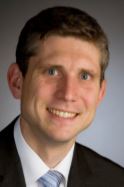
Stephan Huth studied Mechanical Engineering with a special focus on materials and received his diploma degree from the Ruhr-Universität in Bochum, Germany in 2005. In his PhD-thesis at the Chair of Materials Technology of the same university he worked on the alloy development of wear and corrosion resistant cold work tool steels and powdermetallurgical methods to produce these. After receiving his PhD in 2009 he continued working in Bochum as a PostDoc and later as Assistant Professor (“Juniorprofessor”) with a focus on high alloyed metals for the use in harsh conditions, powdermetallurgical production methods as well as materials in fluid-flow systems under cavitation influence. In 2014, he moved to Hilti corporation in Schaan, Liechtenstein, where he currently works on diamond tools for construction.
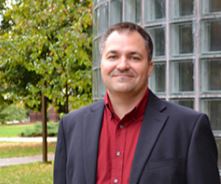
Cris Schwartz is an Associate Professor and Director of Undergraduate Programs in the Department of Mechanical Engineering at Iowa State University since 2012. He leads a research group focused on issues that link biology, tribology, and design. This includes extensive work with the friction and wear of orthopaedic biomaterials such as UHMWPE, the connections between surface properties in tactility of polymer materials, tactual communication methods for the visually impaired, and the modes of skin friction and damage. He is a licensed professional engineer and an engineering consultant. As a senior research engineer at Southwest Research Institute® (SwRI®) from 1998 to 2003, he served as a project manager, mechanical designer, and technical investigator, and holds three patents. Among his past projects is work on the non-lethal Mobility Denial System for the U.S. Department of Defense and the design of ultrasonic inspection hardware for military aircraft. Prior to his current position, he was a faculty member of the Polymer Technology Center, the Institute for Innovation and Design in Engineering, the Materials Science and Engineering Program, and the Biotechnology Program at Texas A&M University from 2006 to 2012. He has taught in the areas of materials science, mechanics, statistics, tribology, and engineering design and has been recognized for his classroom efforts with the Student Led Award for Teaching Excellence (SLATE) and the Peggy L. and Charles L. Brittan ’65 Teaching Award for Outstanding Undergraduate Teaching.
 Peter Filip, PhD, DSc
Peter Filip, PhD, DSc
Director of the Center for Advanced Friction Studies
Professor at the Department of Mechanical Engineering and Energy Processes
SIU Carbondale
Carbondale, IL 62901-4343
e-mail: filip@siu.edu
Contribution to understanding of the relationship between structure and properties of metals, ceramics, composite materials, pioneering work in development and optimization of brake linings. and smart implant materials. Developed analytical procedures and friction materials’ design optimization tools based on understanding of mechanisms applied. More than 100 publications in scientific journals and conference proceedings, three books, seven patents, principal investigator of ten granted national (7) and international (3) projects. Over twenty years of teaching at university (physical metallurgy, materials science, biomaterials, friction materials), supervised 60 master degree graduates and 19 Ph. D graduates, serving on numerous thesis committees, member of the Scientific council of the Faculty of Metallurgy and Materials Engineering TU Ostrava since 1995, member of Chairs and Directors Council at SIU Carbondale, IL since 2003. Service on ASTM and SAE International standardization Committees, Best technical paper in one of the oldest European Journals – Berg und Huettenmaenische Monatshefte (1997), Starley Award for the best original paper in automotive industry, London IMechE, (2003). Treasurer and Program Chair of WOM2011.

Laboratoire de Tribologie et Dynamique des Sytèmes
Ecole Centrale de Lyon
Philippe Kapsa is engineer, graduated from Ecole Centrale de Lyon in 1976. He presented a Doctor of Science Thesis in 1982 in the field of Tribology, with a research subject concerning the mechanical aspect of anti-wear efficiency of antiwear additives like Zinc Dithiophosphate. He is Research Director of CNRS and was from1994 to 2007 the head of “Laboratoire de Tribologie et Dynamique des Systèmes”, UMR 5513, which belongs to Ecole Centrale de Lyon, Ecole Nationale d’Ingénieurs de Saint Etienne and the French National Scientific Research Center (CNRS). He is now responsible of the group “Tribology — Surfaces — Materials” of LTDS. He is also co-director of the LIA (Laboratoire International Associé) ELyT (Engineering and Science Lyon-Tohoku Laboratory) in collaboration with laboratories from Tohoku University, INSA de Lyon and EC Lyon. He is active in the field of Tribology – Materials – Mechanics. The fundamental aspects of tribological problems are studied considering also the applications in relation with industry. His main interests concern the study and prediction of tribological behaviour from the material and mechanical point of view.
Professionnal address :
Laboratoire de Tribologie et Dynamique des Systèmes, UMR CNRS 5513
Ecole Centrale de Lyon,
36 avenue Guy de Collongues, 69131 Ecully Cedex, France,
tél : 33 4 72 18 62 74, fax : 33 4 78 43 33 83,
E-mail : philippe.kapsa@ec-lyon.fr
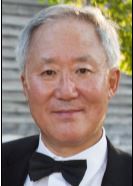
Seong Kwan Rhee is President of SKR Consulting, LLC, which he established in 2006 after retiring from Honeywell International Inc., where his last position was VP of Technology and Sales/Marketing Asia Pacific and China Operations of Friction Materials Group. While at Honeywell (formerly Bendix Corporation), he managed for 30 years an R&D/Engineering team working on friction materials and brakes. He received in 1966 his PhD degree in Materials Science from the University of Cincinnati. He holds 16 US patents and published some 100 technical papers. He is a founding member of the International Conference on Wear of Materials (served as Program Chair in 1977/79 and General Chair in 1981), Technical Program Chair for many years for the SAE Brake Colloquium, a founding member and a member of the Steering Committee of the International Forum on the Fundamentals of Sliding Friction and Vibration, and a founding member and a member of the Steering Committee of the Asia Brake Conference and Exhibition. He is a Fellow of the Society of Automotive Engineers and also the American Ceramic Society, for which he established its Engineering Ceramics Division in 1984.
